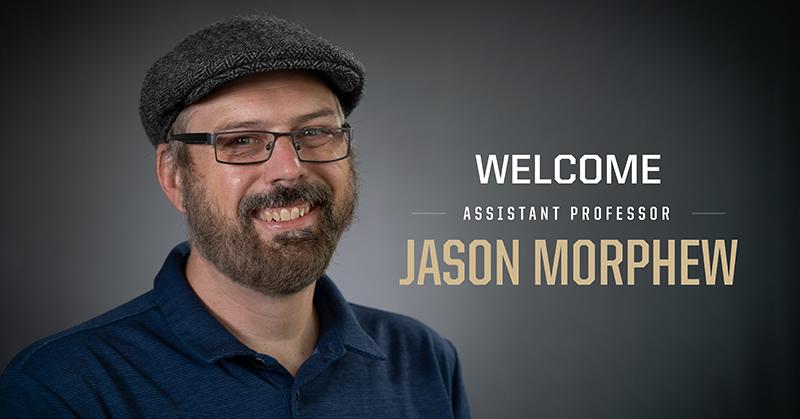Morphew accepts new role as Assistant Professor of Engineering Education
| Event Date: | April 25, 2022 |
|---|
He has served as a visiting assistant professor at Purdue University in Engineering Education since 2019 and for the College of Education's Department of Curriculum and Instruction. Professor Morphew is also affiliated with the Center for Advancing the Teaching and Learning of STEM (CATALYST).

Dr. Morphew's research focuses on the application of principles of learning derived from cognitive science and the learning sciences to the design and evaluation of learning environments and technologies that enhance learning, interest, and engagement in STEM. Dr. Morphew’s expertise in self-regulated learning has resulted in several publications in top-tier journals such as the Journal of Educational Psychology, Metacognition and Learning, Applied Cognitive Psychology, and Physical Review: Physics Education Research. Professor Morphew has been recognized for his teaching in the First-Year Engineering program and is a currently serving as a course curator for Transforming Ideas Into Innovation I. Dr. Morphew has also recently taught courses focused on integrated STEM, quantitative methods, and assessment.
Dr. Morphew earned his Ph.D. from the University of Illinois Urbana-Champaign in Educational Psychology from the Cognitive Science of Teaching and Learning Division. His dissertation examined self-regulated learning of engineering students enrolled in introductory physics courses. While at Illinois, he collaborated on research with colleagues in engineering education, mechanical engineering, computer science, physics education, human and computer interactions, as well as educational psychology, the learning sciences, and curriculum and instruction. Prior to pursing his doctorate, Professor Morphew earned his master's degree in Educational Psychology from Wichita State University where he also served as an instructor at Wichita Area Technical College in the math and chemistry departments. Dr. Morphew has also taught math and science in middle school and high school where he combined scientific inquiry and engineering design to teach math and science.
Related
Morphew's Faculty Candidate Research Seminar "Self-regulated Learning of Engineering Students in Introductory STEM Courses: Implications for Course Design and Technology"
Students engage in self-regulated learning when they have some control over and are active participants in the learning process. The self-regulated nature of learning is particularly evident when students control how they complete homework, how they organize and engage with course projects, and the study for course assessments. From this perspective, success within STEM courses is due largely to the effectiveness with which students engage in self-regulated learning. In this talk, I will present the four-phase model of self-regulated learning that grounds my research. I will then present my research examining self-regulated learning of engineering students enrolled in introductory STEM courses in two contexts. The first context examines engineering students' metacognitive processes as they prepare for exams. The findings from these studies indicate that there is a dynamic and reciprocal relationship between metacognitive monitoring and control processes such that students monitor their current knowledge state against task-specific criteria to plan and enact effective study strategies. In addition, the findings indicate a need for explicit instruction of self-regulated learning strategies. The second context examines the effect of incorporating engineering design tasks in physics labs on self-regulated learning and transfer. Preliminary findings indicate that the design of the integrated labs is critical to engaging students and facilitating transfer. The studies presented will highlight the direction for future research.
